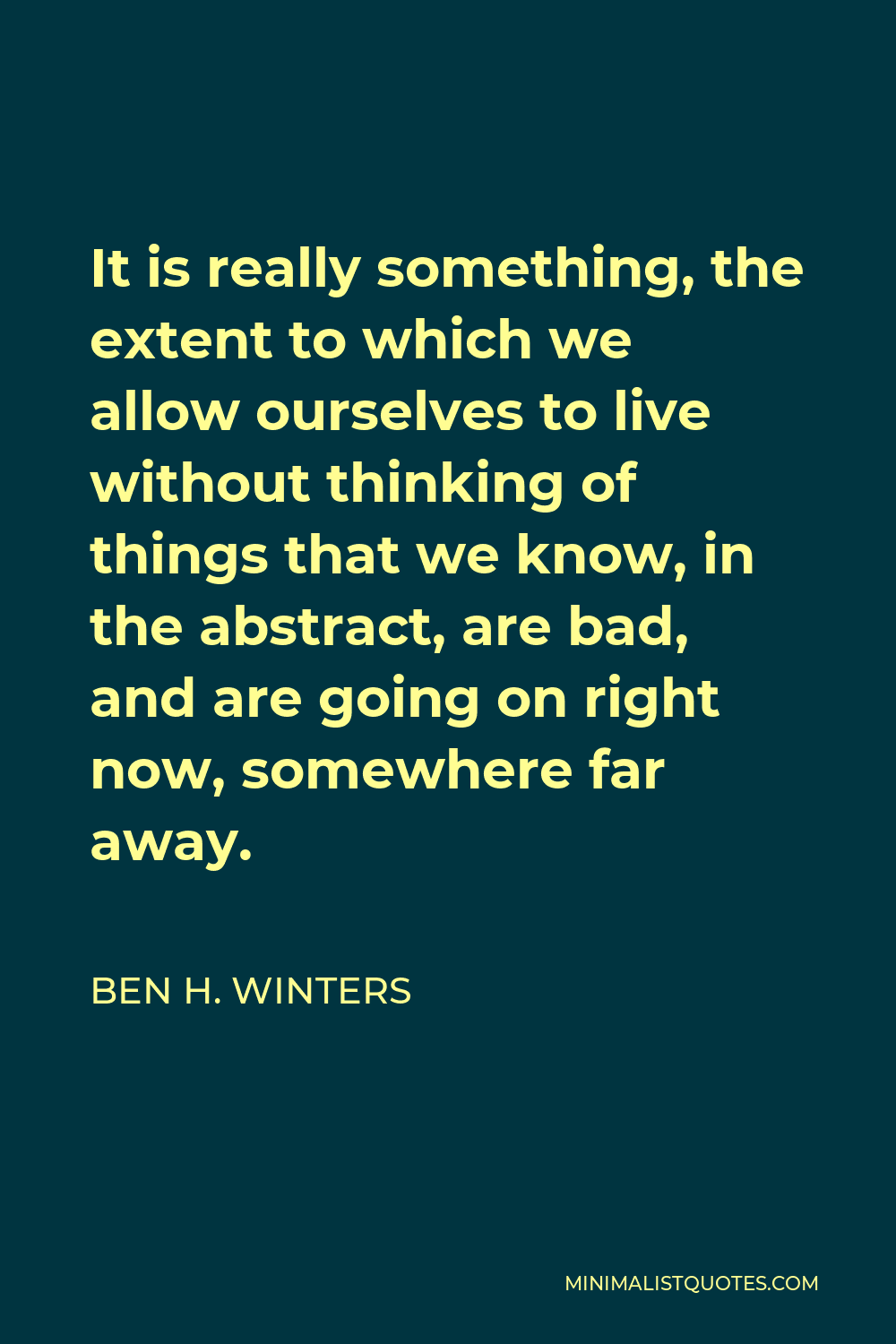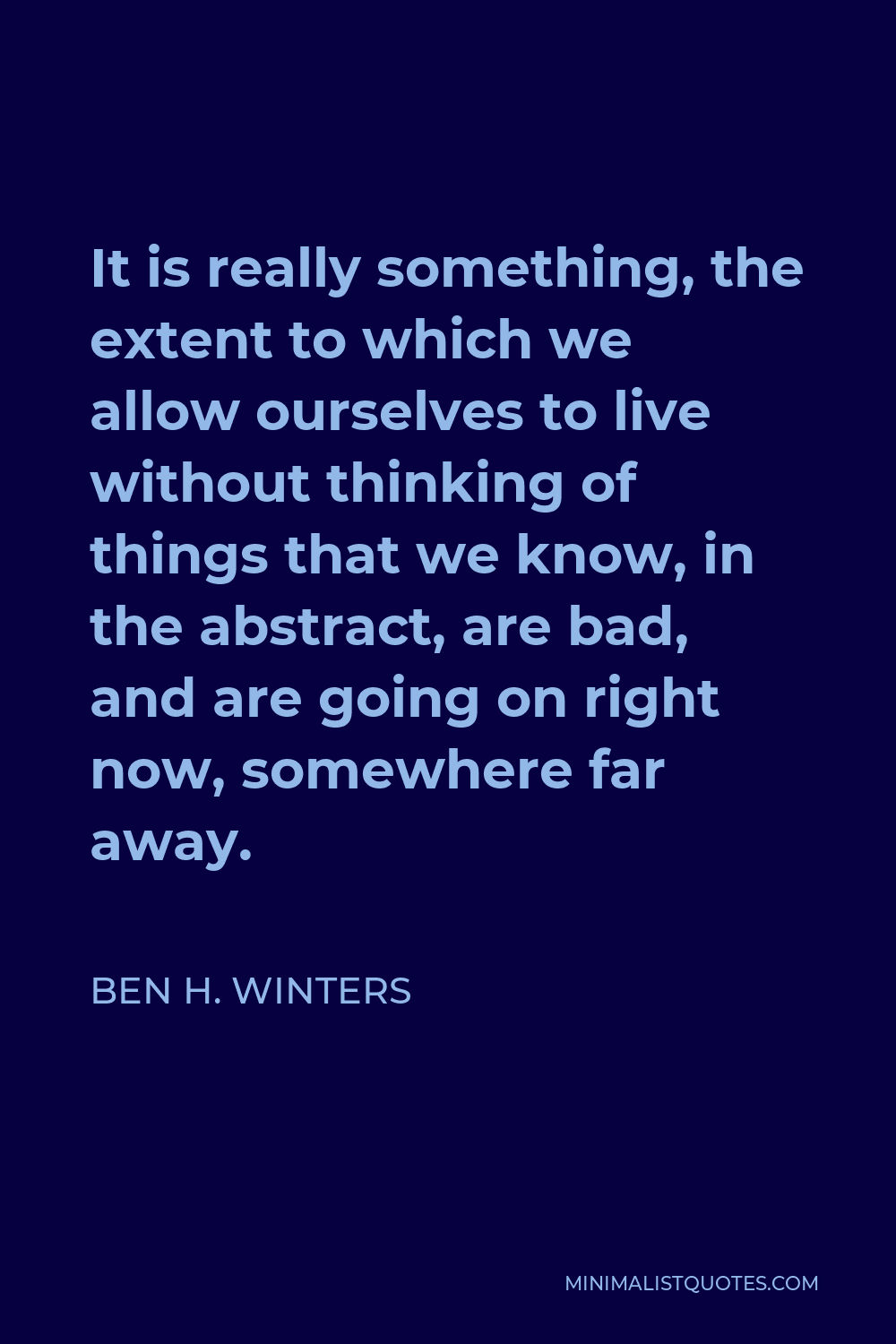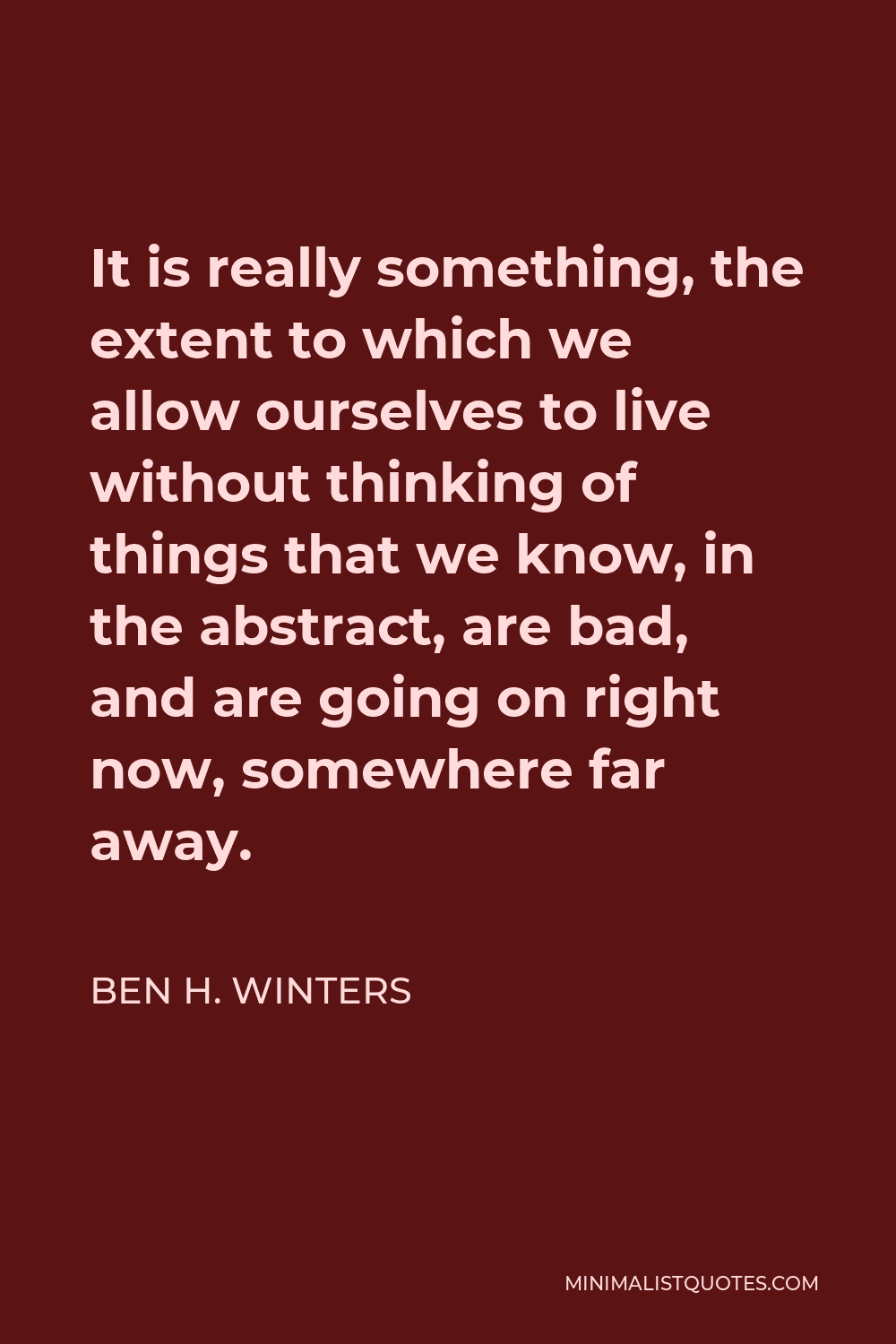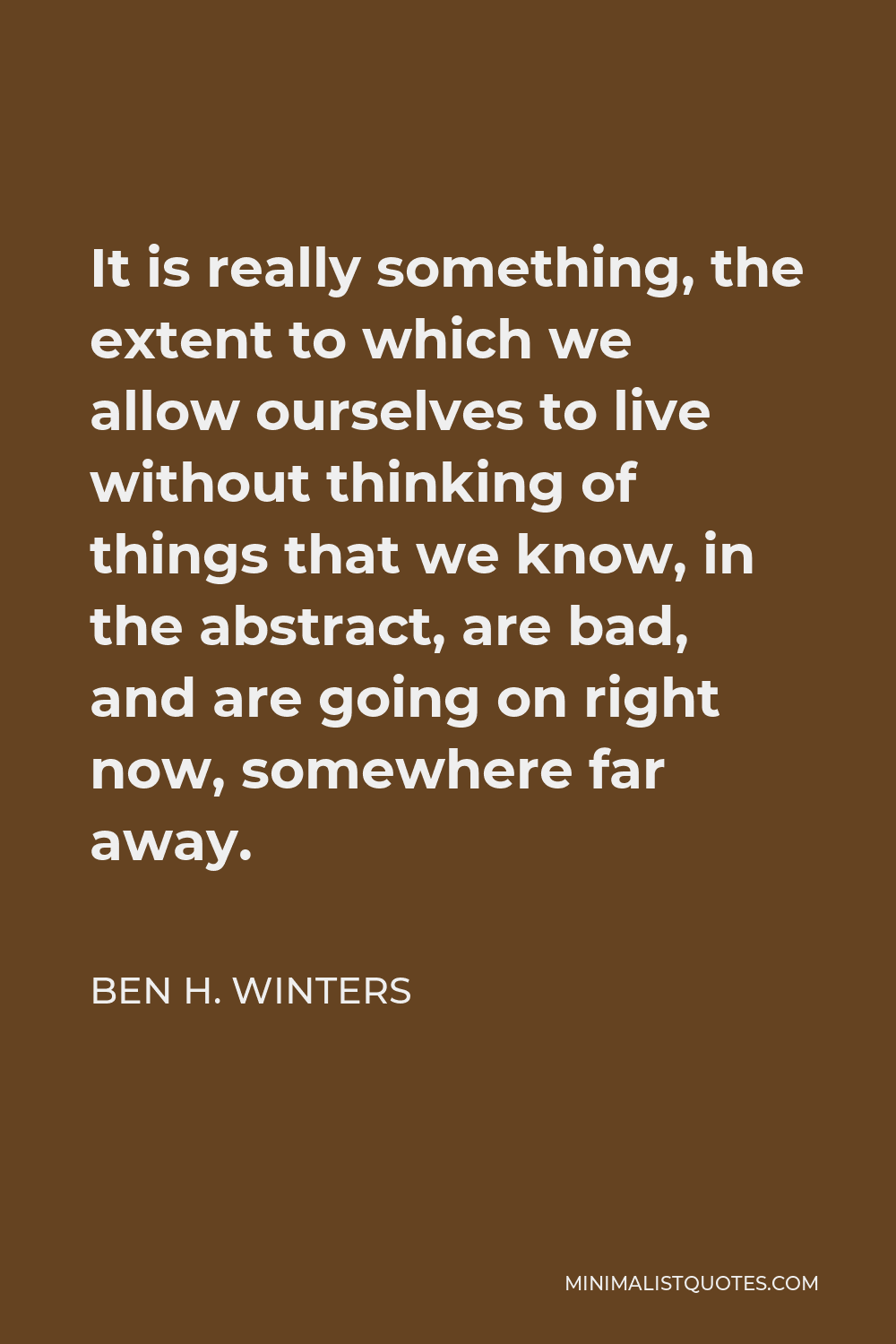We think, “Well, what are you gonna do?” In a way, that little instinct, that “What are you gonna do?” is the most dangerous thing in the world.
BEN H. WINTERSIt is really something, the extent to which we allow ourselves to live without thinking of things that we know, in the abstract, are bad, and are going on right now, somewhere far away.
More Ben H. Winters Quotes
-





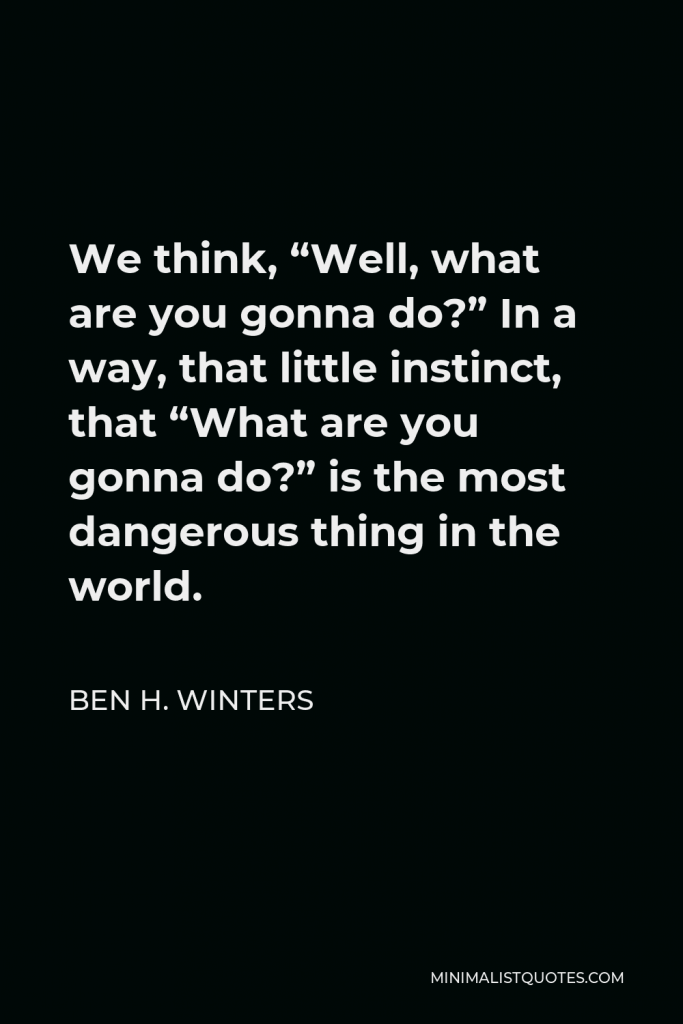

-





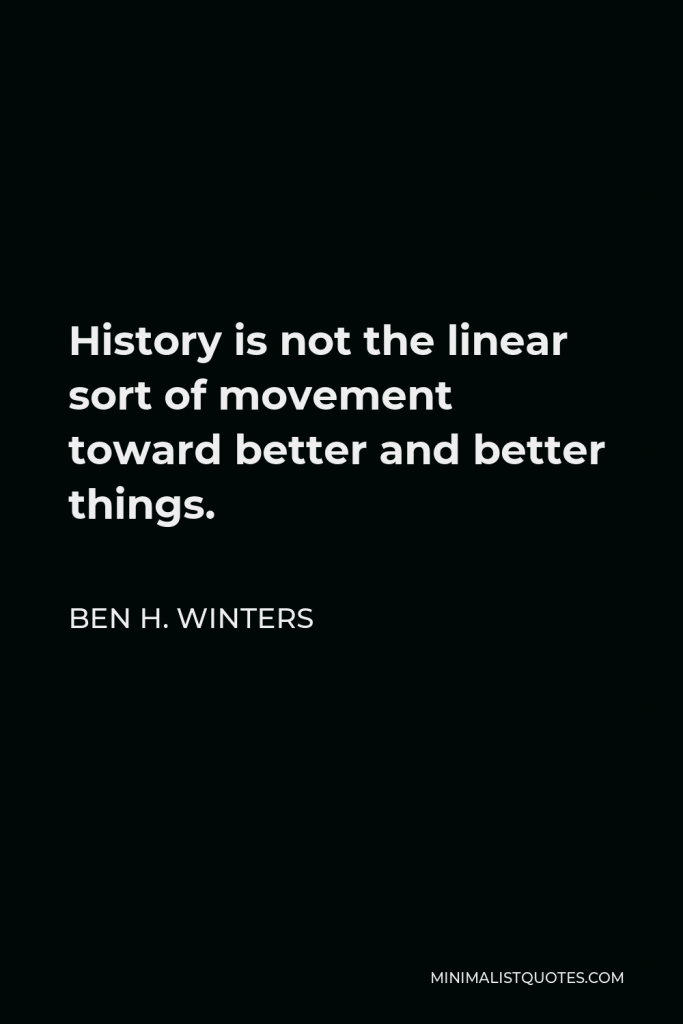

History is not the linear sort of movement toward better and better things.
BEN H. WINTERS -





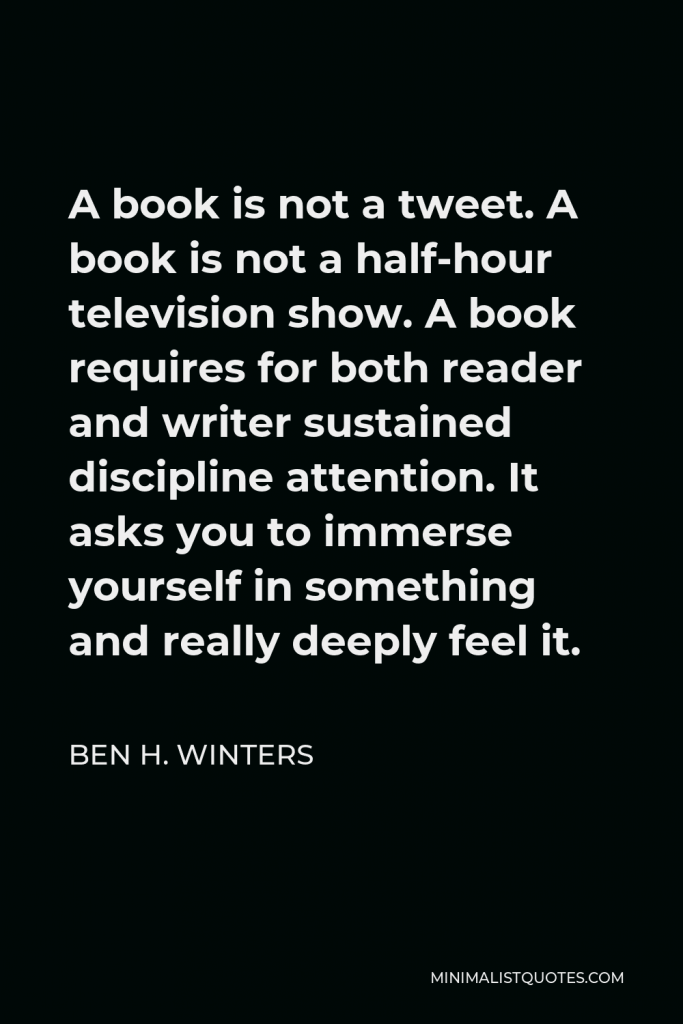

A book is not a tweet. A book is not a half-hour television show. A book requires for both reader and writer sustained discipline attention. It asks you to immerse yourself in something and really deeply feel it.
BEN H. WINTERS -





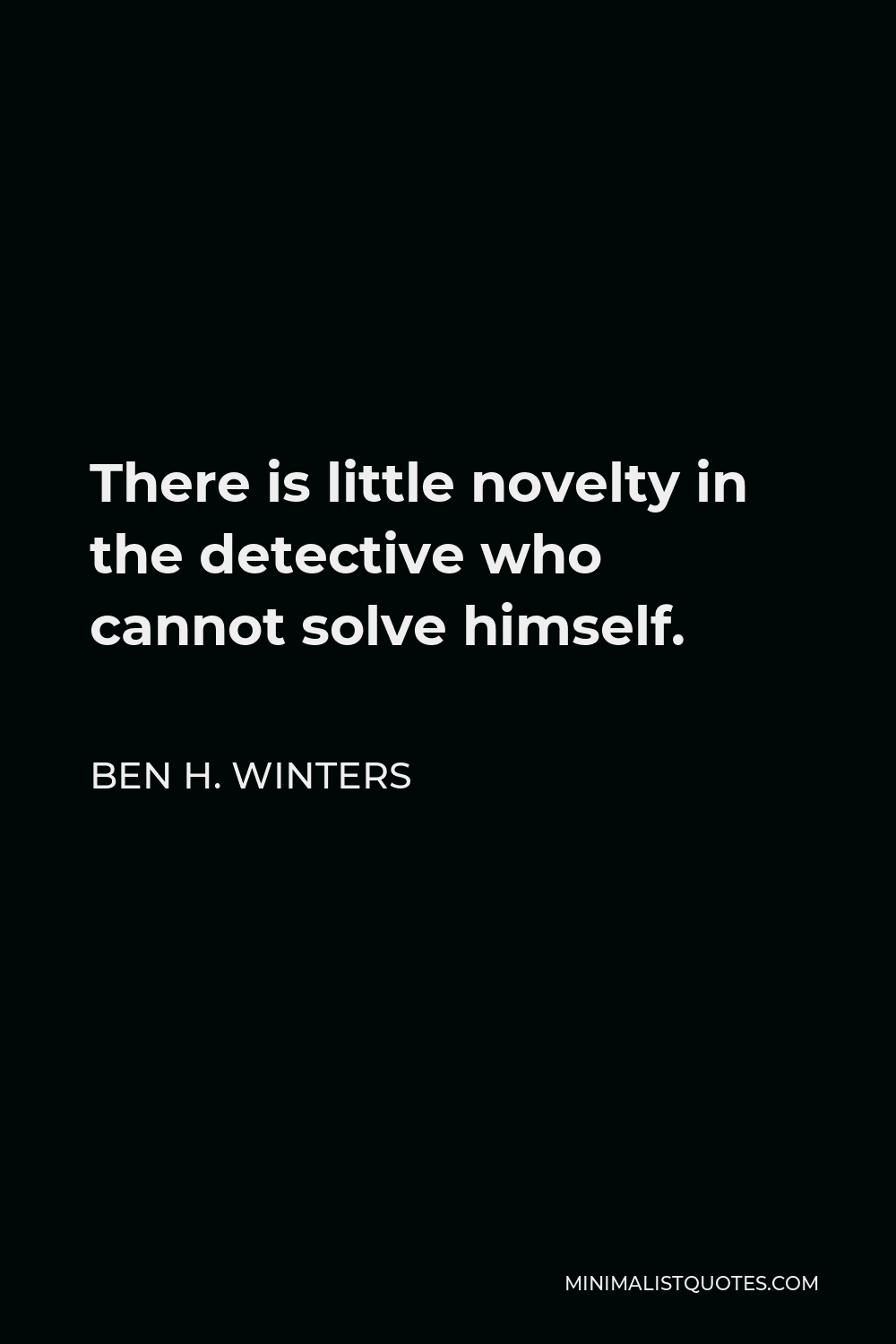
There is little novelty in the detective who cannot solve himself.
BEN H. WINTERS -





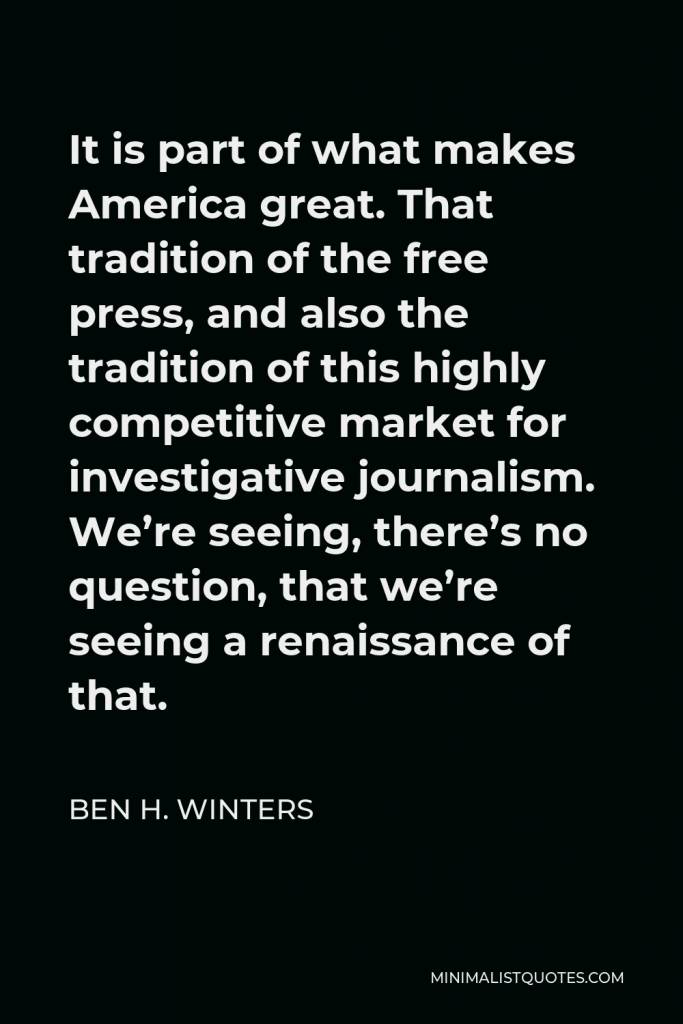

It is part of what makes America great. That tradition of the free press, and also the tradition of this highly competitive market for investigative journalism. We’re seeing, there’s no question, that we’re seeing a renaissance of that.
BEN H. WINTERS -





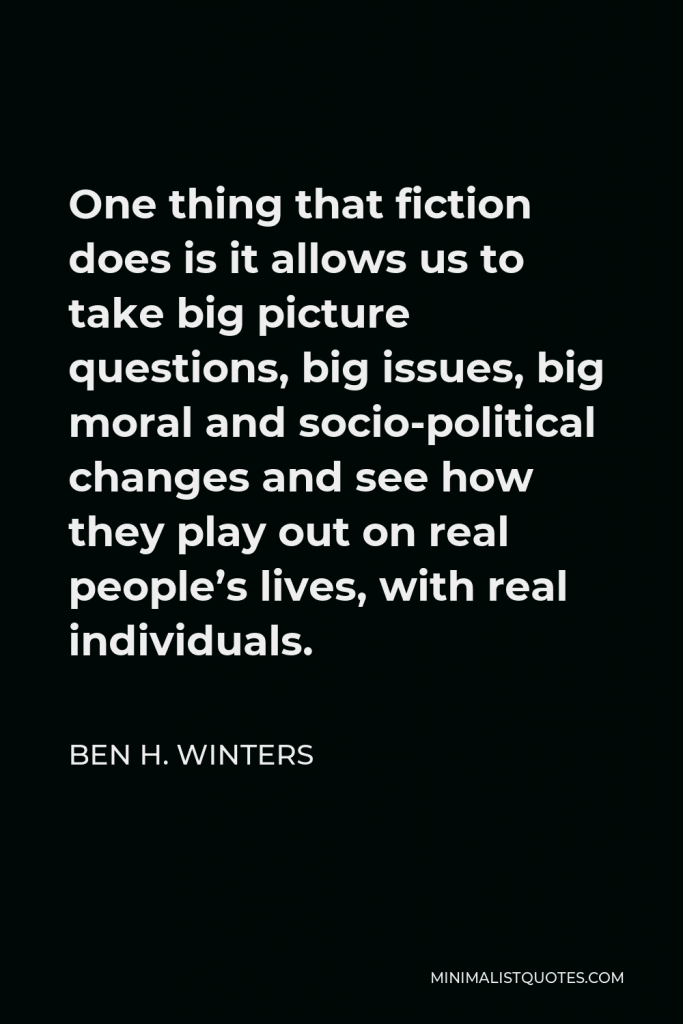

One thing that fiction does is it allows us to take big picture questions, big issues, big moral and socio-political changes and see how they play out on real people’s lives, with real individuals.
BEN H. WINTERS -





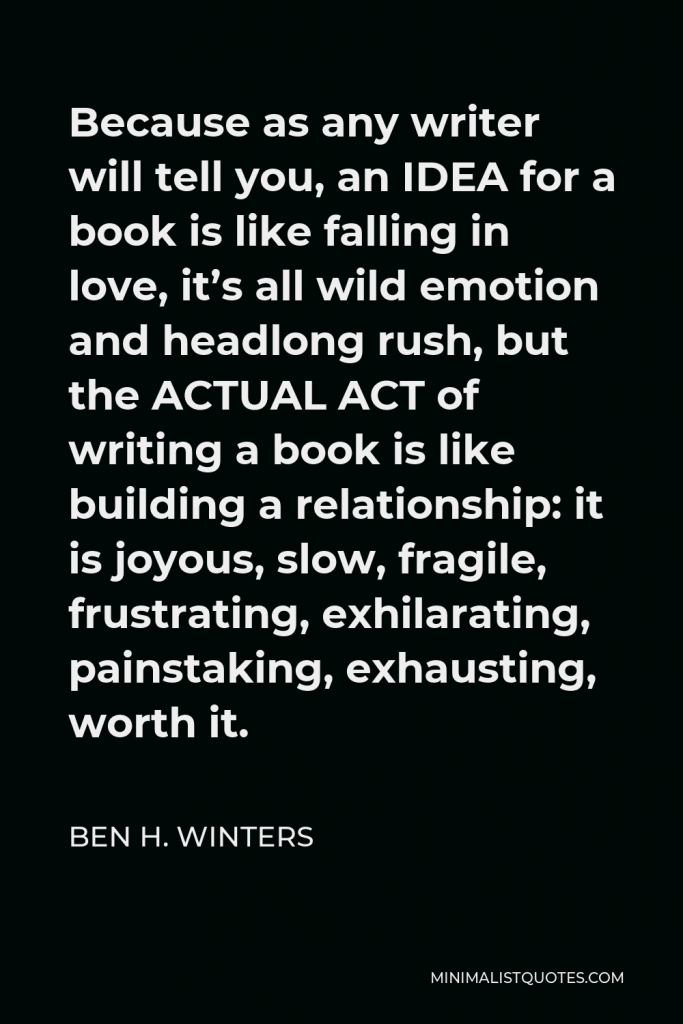

Because as any writer will tell you, an IDEA for a book is like falling in love, it’s all wild emotion and headlong rush, but the ACTUAL ACT of writing a book is like building a relationship: it is joyous, slow, fragile, frustrating, exhilarating, painstaking, exhausting, worth it.
BEN H. WINTERS -





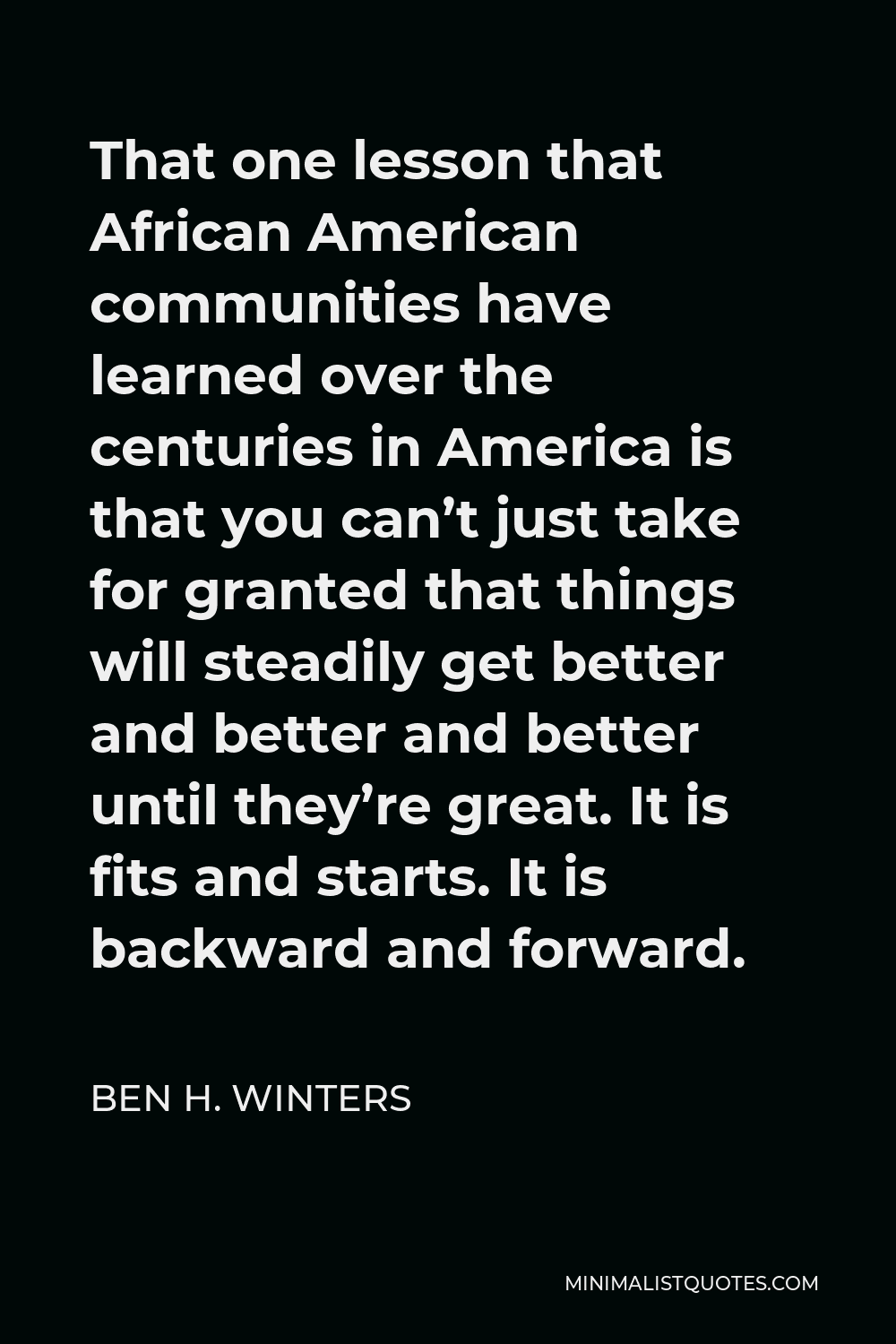
That one lesson that African American communities have learned over the centuries in America is that you can’t just take for granted that things will steadily get better and better and better until they’re great. It is fits and starts. It is backward and forward.
BEN H. WINTERS -





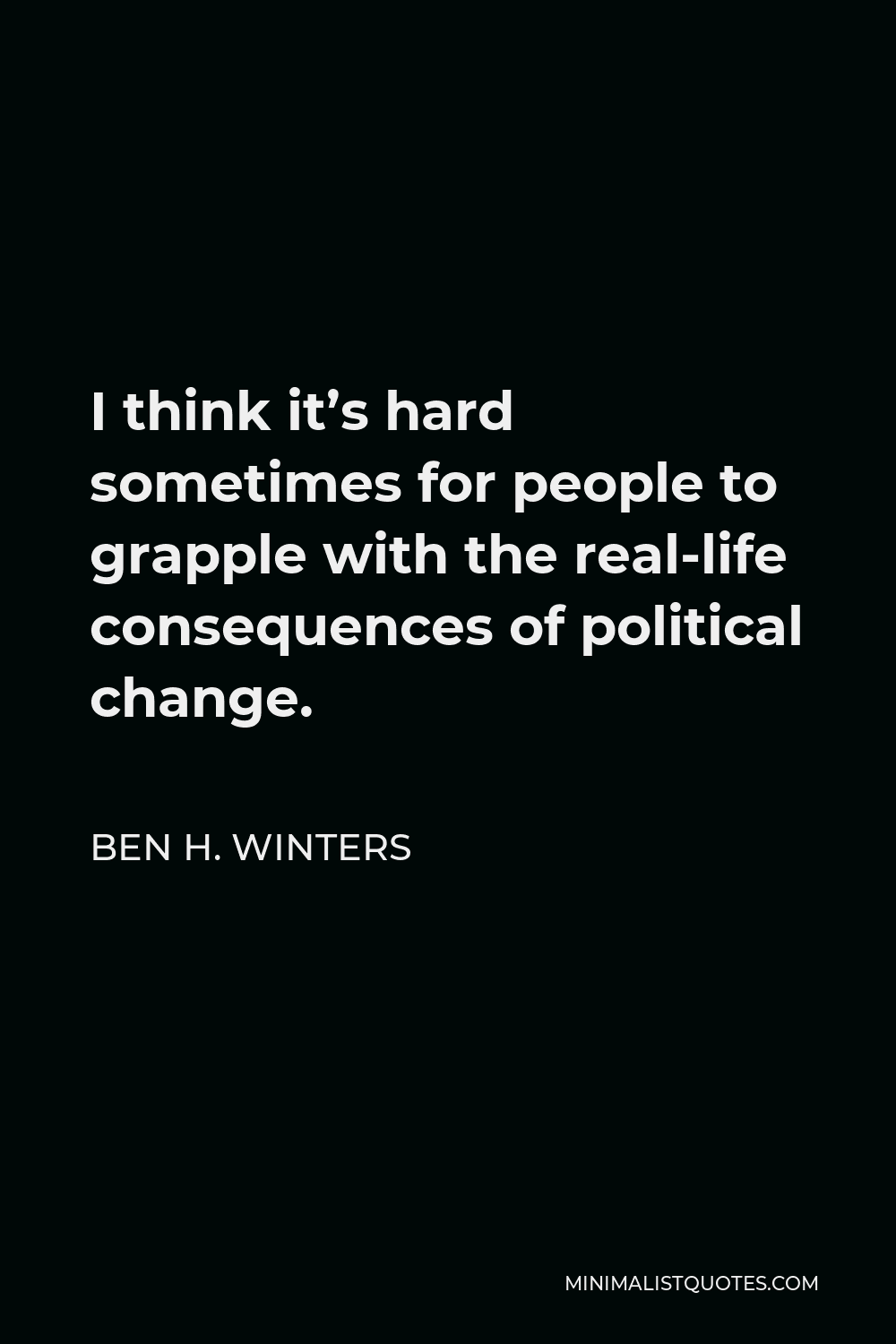
I think it’s hard sometimes for people to grapple with the real-life consequences of political change.
BEN H. WINTERS -





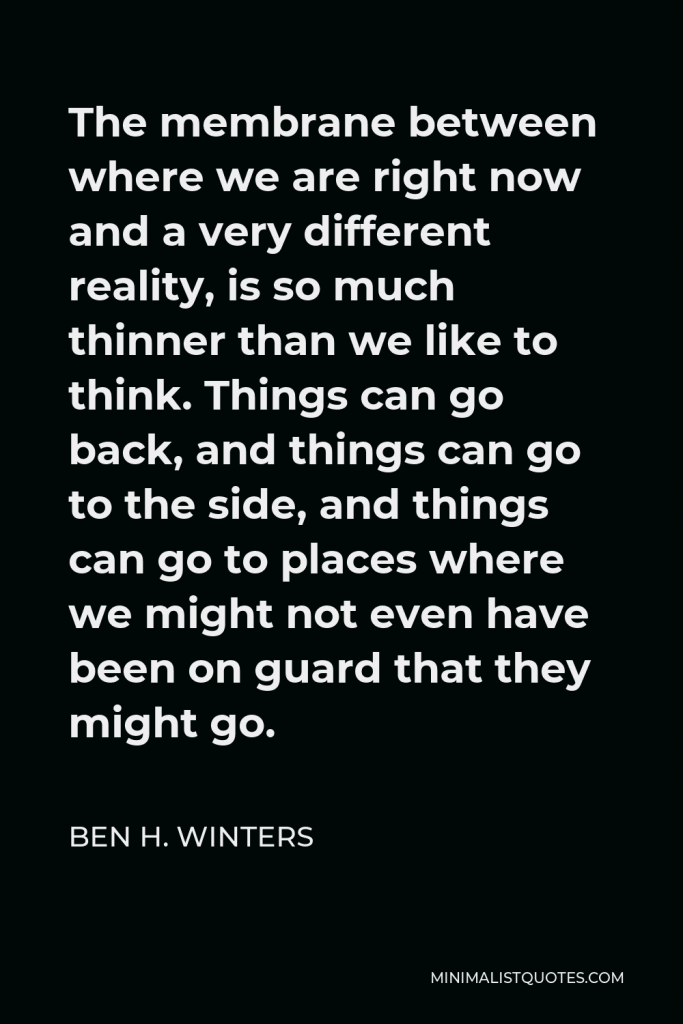

The membrane between where we are right now and a very different reality, is so much thinner than we like to think. Things can go back, and things can go to the side, and things can go to places where we might not even have been on guard that they might go.
BEN H. WINTERS -





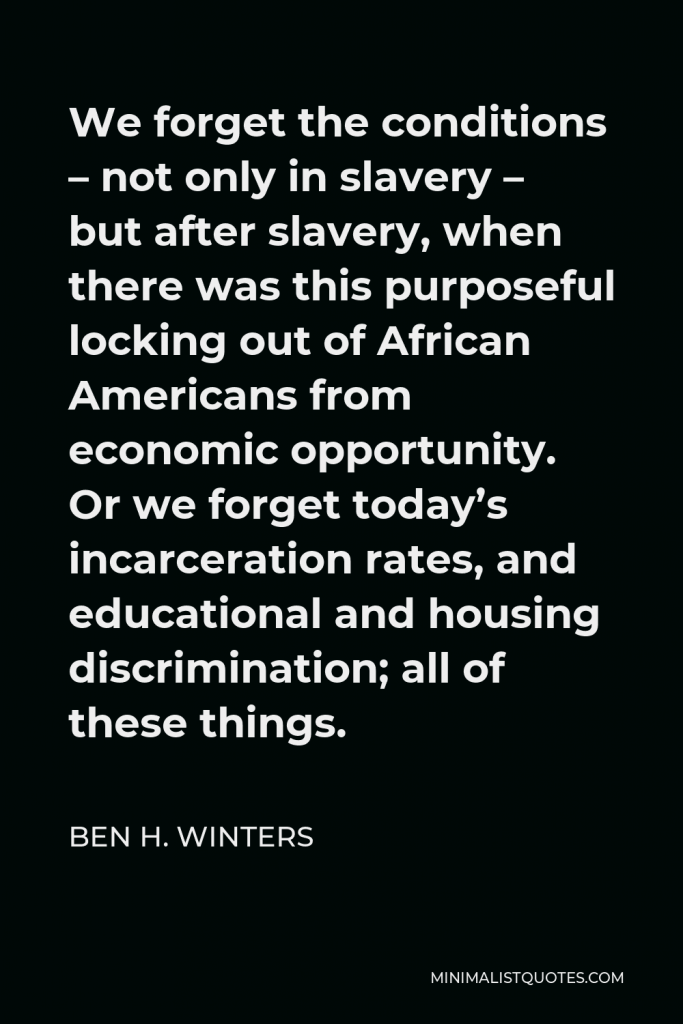

We forget the conditions – not only in slavery – but after slavery, when there was this purposeful locking out of African Americans from economic opportunity. Or we forget today’s incarceration rates, and educational and housing discrimination; all of these things.
BEN H. WINTERS -





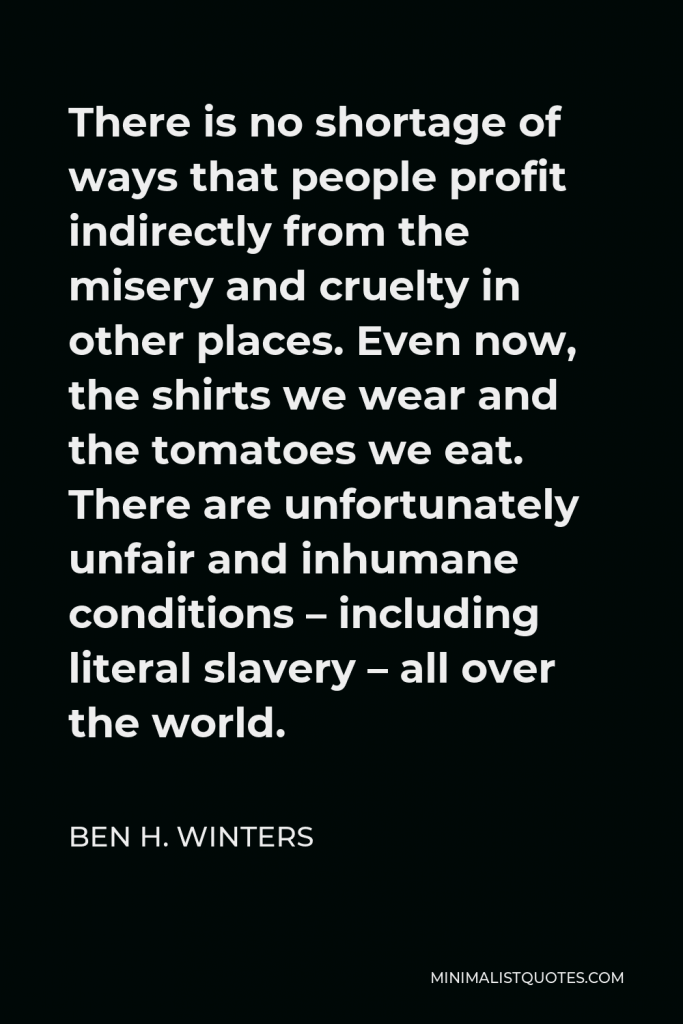

There is no shortage of ways that people profit indirectly from the misery and cruelty in other places. Even now, the shirts we wear and the tomatoes we eat. There are unfortunately unfair and inhumane conditions – including literal slavery – all over the world.
BEN H. WINTERS -





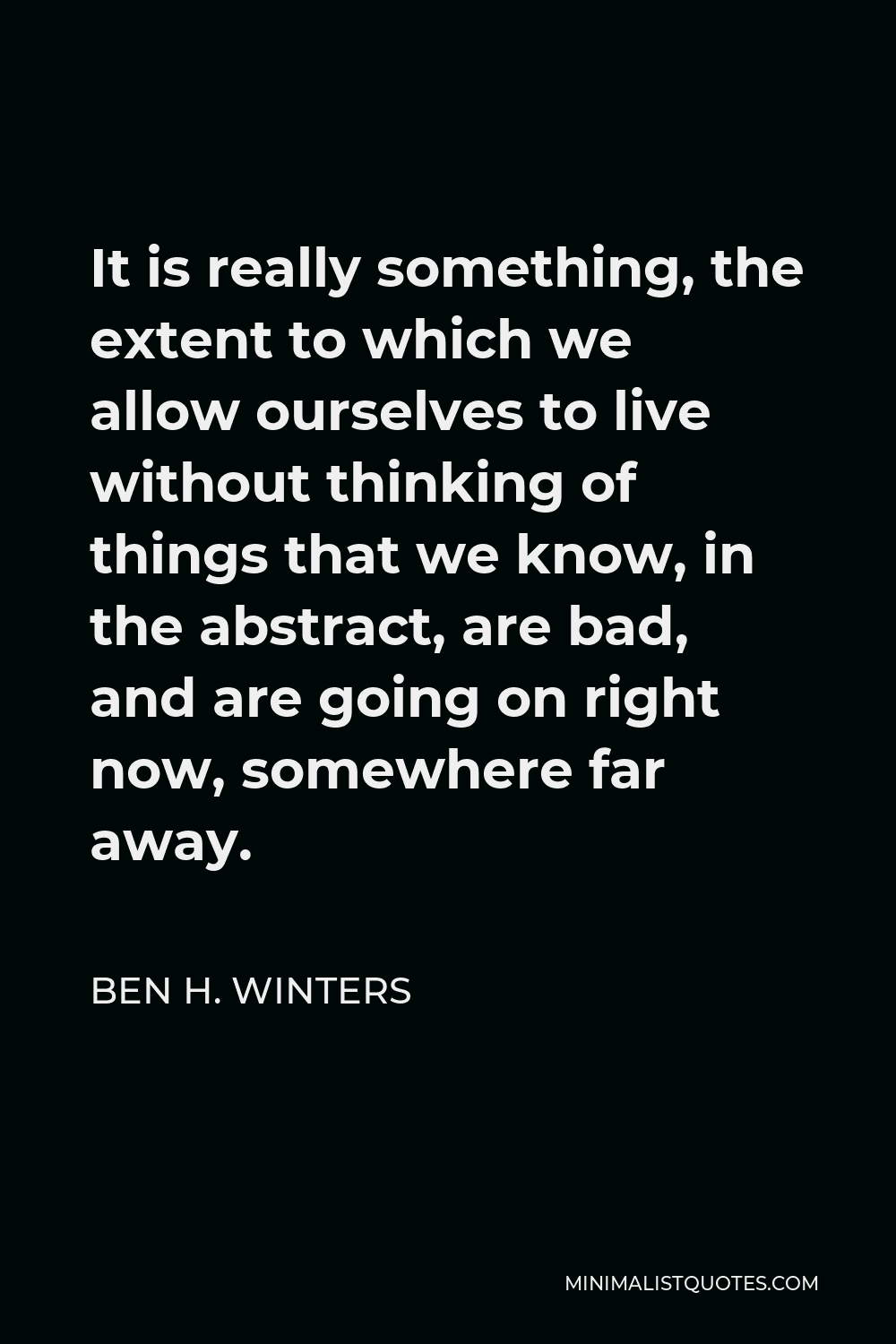
It is really something, the extent to which we allow ourselves to live without thinking of things that we know, in the abstract, are bad, and are going on right now, somewhere far away.
BEN H. WINTERS -





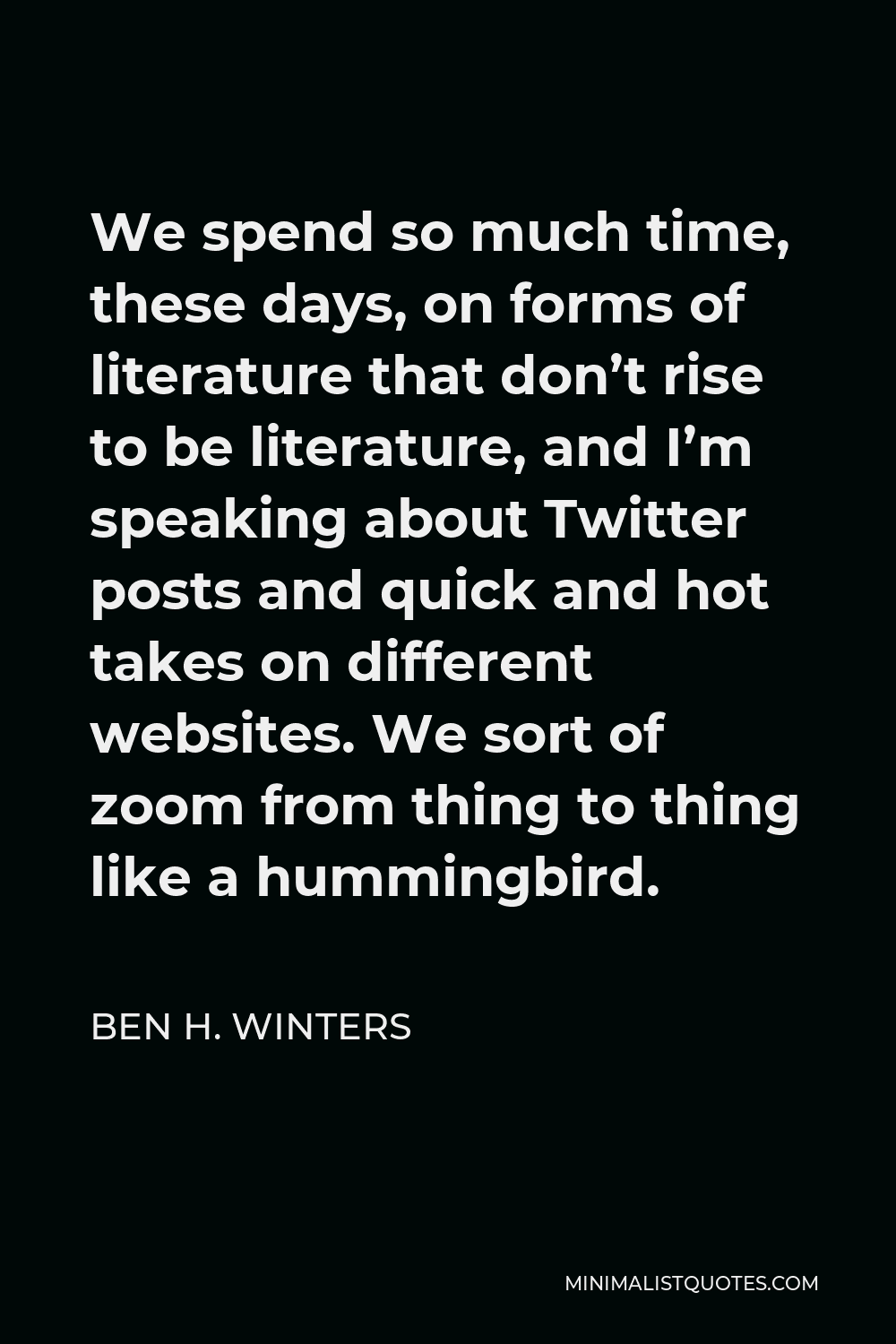
We spend so much time, these days, on forms of literature that don’t rise to be literature, and I’m speaking about Twitter posts and quick and hot takes on different websites. We sort of zoom from thing to thing like a hummingbird.
BEN H. WINTERS -





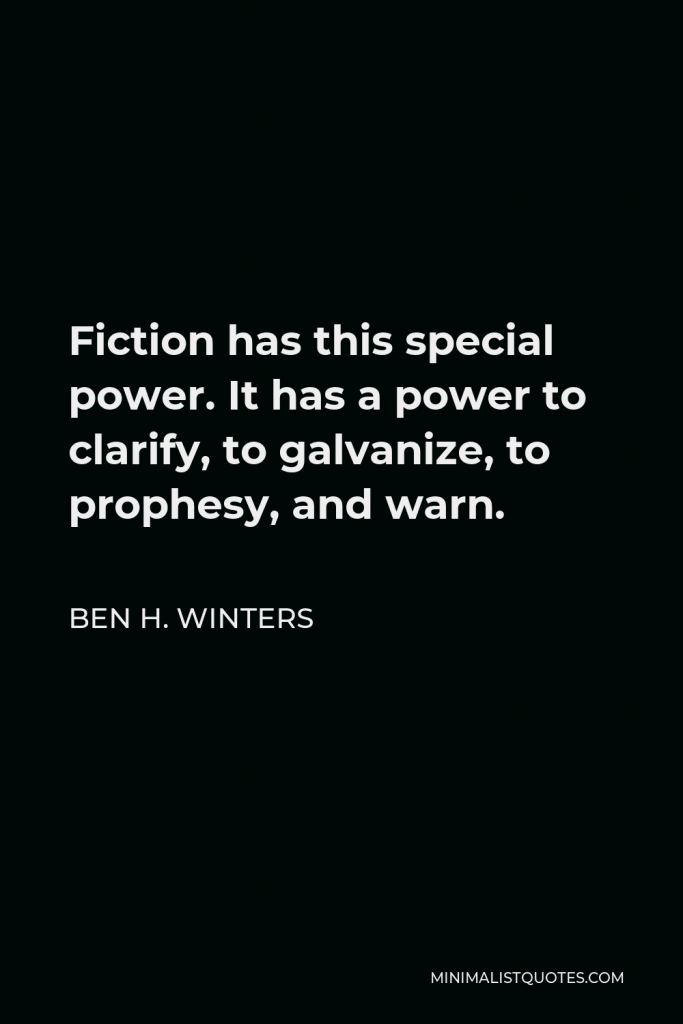

Fiction has this special power. It has a power to clarify, to galvanize, to prophesy, and warn.
BEN H. WINTERS -





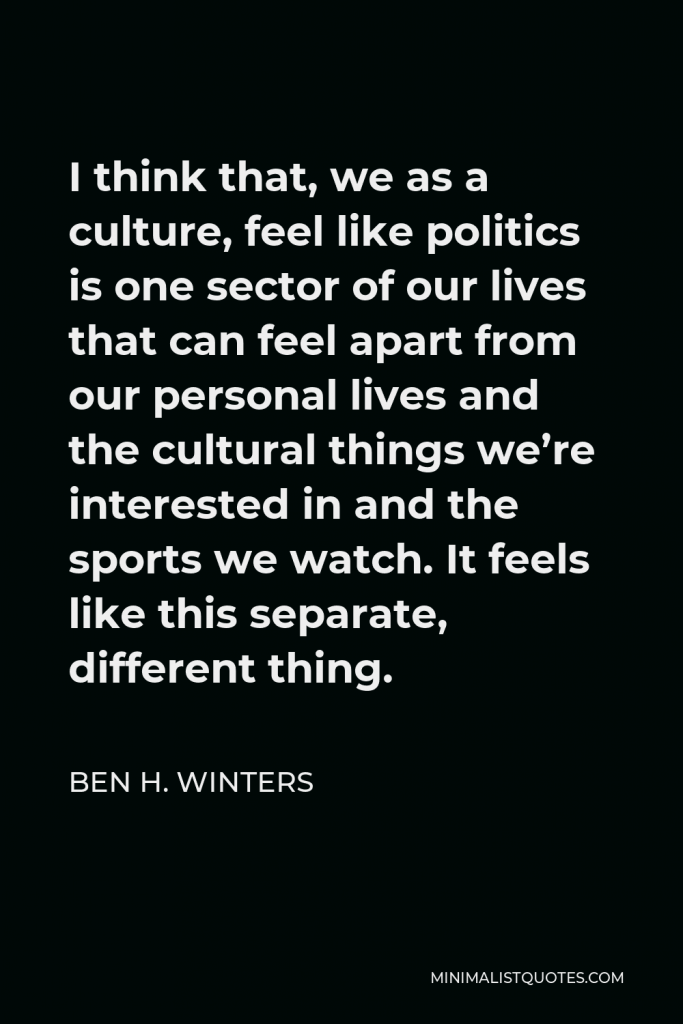

I think that, we as a culture, feel like politics is one sector of our lives that can feel apart from our personal lives and the cultural things we’re interested in and the sports we watch. It feels like this separate, different thing.
BEN H. WINTERS
